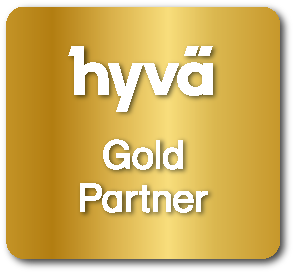Running an e-commerce store on **Magento** is a powerful choice, but simply having a great website isn't enough. To get customers to your products, you need Search Engine Optimization (SEO). If you're a merchant without a deep technical background, the world of SEO might seem overwhelming. Don't worry! This **Magento SEO tutorial** is designed specifically for you. We'll walk you through **how to do SEO on Magento** step-by-step, focusing on easy wins, built-in features, and helpful tools to boost your store's visibility. For a comprehensive suite of SEO solutions, explore our Magento 2 extensions page.
Mastering **ecommerce Magento SEO** means making your store easy for search engines like Google to understand, which ultimately helps more customers find your products.
---
1. Set Up Your Magento Store for Basic SEO Success
Before diving into advanced tactics, ensure your Magento store has its fundamental SEO settings configured correctly. These are simple adjustments within your Magento Admin Panel that make a big difference.
Checklist for Basic Configuration:
- **Enable Web Server Rewrites:** This is crucial for clean, readable URLs. Go to `Stores > Configuration > General > Web > Search Engine Optimization` and ensure "Use Web Server Rewrites" is set to "Yes".
- **Remove `index.php` from URLs:** This makes your URLs cleaner and more SEO-friendly. Typically, this is also handled by Web Server Rewrites.
- **Choose HTTPS:** Always use secure (HTTPS) URLs. This is a ranking factor and builds customer trust. Most hosting providers offer SSL certificates.
- **Set Up a Store Description:** In `Content > Design > Configuration`, select your store view and add a relevant "Default Description."
---
2. Optimize Your Product and Category Pages (On-Page SEO)
Your product and category pages are the core of your store. Optimizing them is key to **seo on magento**. Focus on making them informative for customers and clear for search engines.
Actionable Steps for Merchants:
- **Compelling Product Names:** Use clear, descriptive product names that include relevant keywords.
- **Unique Meta Titles:** Go to `Products > Catalog`, select a product, and find "Search Engine Optimization" section. Create a unique, engaging **Meta Title** (up to 60 characters) that includes your main keyword. Do this for all products and categories.
- **Catchy Meta Descriptions:** In the same "Search Engine Optimization" section, write a unique **Meta Description** (up to 160 characters) that summarizes the page and encourages clicks.
- **SEO-Friendly URLs (URL Key):** Magento automatically generates a URL Key, but you can edit it. Make sure it's short, includes relevant keywords, and uses hyphens to separate words. (e.g., `red-leather-shoes` instead of `red_leather_shoes_pid123`).
- **Rich Product Descriptions:** Write detailed, unique, and helpful product descriptions. Don't just copy from the manufacturer! Include features, benefits, and common uses. Use headings (like H2, H3) to break up text.
- **Optimized Category Descriptions:** For each category, add unique, descriptive text at the top. This helps search engines understand what the category is about. Our SEO: Dynamic Descriptions module can help you automatically inject selected attribute values into category descriptions, making your content SEO-optimized and dynamically tailored based on filter selections, significantly improving search engine rankings.
- **High-Quality Images with Alt Text:** Upload clear, high-resolution images. Crucially, add descriptive **Alt Text** to every image (e.g., `red-leather-womens-shoes` instead of `img123.jpg`). This helps search engines understand image content and improves accessibility.
Managing meta tags for a large store can be time-consuming. Our SEO: Custom Tags extension provides powerful tools to manage custom meta tags and robots directives across your Magento store, ensuring unique and optimized tags across all your categories and attribute-filtered pages. For AI-powered suggestions for titles, descriptions, and metadata, our SEO: AI Advisor extension can be a game-changer.
---
3. Master Magento's Layered Navigation for SEO
Magento's layered navigation (filters) is great for users but can create many duplicate pages that harm your SEO. You need to tell search engines which filter pages to focus on and which to ignore.
Tips for Managing Filters:
- **Canonical Tags:** Magento handles some canonical tags by default, which tells Google the "main" version of a page when duplicates exist. Always verify they are correct.
- **Manage Indexing of Filter Combinations:** Not every filter combination needs to be indexed by Google. For common, important combinations (e.g., "blue dresses"), you might want them indexed. For very specific, rarely searched combinations, you might want to `noindex` them. This prevents diluting your store's SEO authority.
- **Clean Filter URLs:** By default, filter URLs can look messy (e.g., `category.html?color=red`). Clean, readable URLs (e.g., `category/red-dresses.html`) are better for SEO. Our SEO: Pretty Filters URLs extension is designed precisely for this, transforming complex URLs into SEO-friendly paths.
---
4. Use Sitemaps and robots.txt to Guide Search Engines
Think of your XML sitemap as a map for search engines, showing them all the important pages on your site. `robots.txt` tells them where they *shouldn't* go.
Simple Steps for Sitemaps and robots.txt:
- **Generate and Submit XML Sitemap:** In Magento, go to `Stores > Configuration > Catalog > XML Sitemap`. Configure it to include products, categories, and CMS pages. Then, submit your sitemap to Google Search Console. Do this regularly, especially after adding many new products. Our SEO: Advanced Sitemaps extension helps in creating dynamic, split sitemaps for optimal crawl efficiency on large Magento stores.
- **Review your robots.txt:** This file (usually at `yourstore.com/robots.txt`) tells search engines which parts of your site to crawl and which to ignore. Ensure it's not blocking important pages. You typically want to block administrative areas, internal search results, and duplicate filter URLs.
---
5. Essential SEO Tools for Magento Website Owners
While Magento has built-in SEO features, specialized modules can significantly enhance your **seo for magento website** without requiring deep technical knowledge.
Recommended qoliber Modules:
- **For Rich Snippets:** To make your products stand out in search results with star ratings, prices, and availability, implement rich snippets (structured data). Our SEO: Rich Snippets extension automates this complex process.
- **For International SEO (Hreflangs):** If your store operates in multiple languages or countries, correct `hreflang` tags are vital to serve the right content to the right audience and avoid duplicate content issues. Our SEO: Hreflangs extension streamlines this complex process.
---
Conclusion: Empowering Your Magento Store's SEO
You don't need to be an SEO expert or a developer to start seeing results from **SEO on Magento**. By focusing on these fundamental steps – optimizing your pages, managing layered navigation, using sitemaps, and leveraging smart modules – you can significantly improve your **ecommerce Magento SEO** and drive more organic traffic to your store.
Regularly monitor your Google Search Console for any issues and remember that SEO is an ongoing process. With these tips and the right **seo for magento website** tools, your store is well on its way to climbing search rankings.

Aleksandra "Ola" Czapiewska, née Kijewska
Sorceress of Projects & Wonders
Introducing Ola, a marketing mastermind with nearly two decades of expertise in transforming data into dynamic marketing strategies. Her remarkable track record includes transformative roles at Burda Media Polska, Polska Press Grupa, TIM S.A., and Media Saturn Holding. These positions have seen her launch and lead marketing initiatives that dramatically increased engagement and sales.
A certified Google Partner proficient in top marketing automation platforms like SalesManago and iPresso, Ola has consistently delivered solutions that enhance online visibility and propel business growth.
Currently at qoliber as the 'Sorceress of Projects & Wonders,' she expertly drives projects that surpass expectations, delivering top-notch product quality and securing a formidable market stance.




